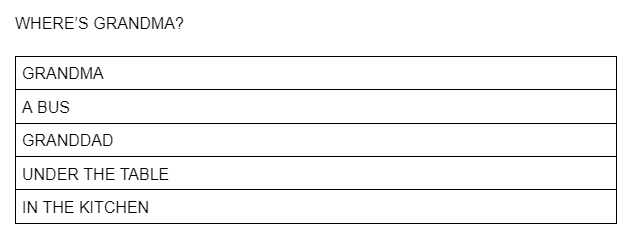Predicting skills are not about fortune-telling. We need them to plan our future, decide if we read the book or pick up another one, go out for a walk or stay at home, become a scientist or a teacher. Why and how should we develop these skills in the lessons with kids? What activities are the most efficient?
Why are predictions important?
The three stages in developing students’ listening, reading, writing and speaking skills are called «pre-», «while» and «post-». The first part is vital as it ensures success, helps children to have better results.
- predictions prepare children for the text so that they are ready to perceive the information;
- predictions make the process of teaching and learning faster;
- the role of predicting skills is huge in the top-down approach (top-down listening, top-down reading).
Some people believe that children cannot predict because their speaking skills are not advanced enough to express ideas. However, my teaching practice shows that children are able to guess the main ideas of the text, create their own stories based on the pictures for the text. The teacher’s task is to organize the conditions for better comprehension.
How should we develop children’s predicting skills? I’m going to share some of my teaching experience with you.
First of all, the strategy depends on the text, its topic, linguistic (vocabulary, grammar), and extra-linguistic means (cultural peculiarities, for example). There are two basic types of elements used for developing predictive skills:
- visual: prediction is based on pictures, short animation or videos, graphs, maps, schemes, etc.
- verbal: headings and titles, key words, and phrases.
Visual elements are preferable for younger children.
My favorite strategies to work with listening and reading
1. Show the students the title of the text and three pictures. Encourage them to choose one that suits the title. You may also ask to explain why they think so. A kind of reversed activity is to show three pictures and ask to find the best title for them.
2. Give the students the card with the list of words. Ask them to choose the words which may be used in the text. For example:

3. Give the students the title of the text. Ask them to find the keywords for the text. If you have group lessons, encourage students to find the keywords together and then organize a competition or a game.
4. «Reconstructed picture». Make a puzzle from a picture and open each of the puzzles one by one encouraging your students to guess the scene.
5. Show the people who are talking and ask children to guess their age, profession, what they like/dislike. After the listening praise those who guessed right.
6. «Divided story»: divide the text into two parts and after reading the first ask students to write or to guess orally a possible ending.
When developing predictive skills speaking and writing skills are also developed. But how to improve predicting skills in writing and speaking?
Such skills are mainly used when planning. Children are supposed to understand what they need to do, what result they are going to have, and how they can reach the goal. Here are some activities that I apply:
— When making a story based on a series of pictures, don’t show all the pictures but hide one of them. Encourage your student to guess
— if the ending is happy or sad;
— how to tell about a happy/sad ending.
— Give your students the plan of the story/letter that they need to write but «forget» to give some of the stages of the plan. Encourage your students to guess what they need to add to the plan.
There are a lot of approaches to teach predicting skills. Use any of them to involve your students in the tasks. Improving predicting skills boost children’s analytical abilities and their future potential in life.






 Вероника Аветисян
Вероника Аветисян 
 Маргарита Аветисян
Маргарита Аветисян 


